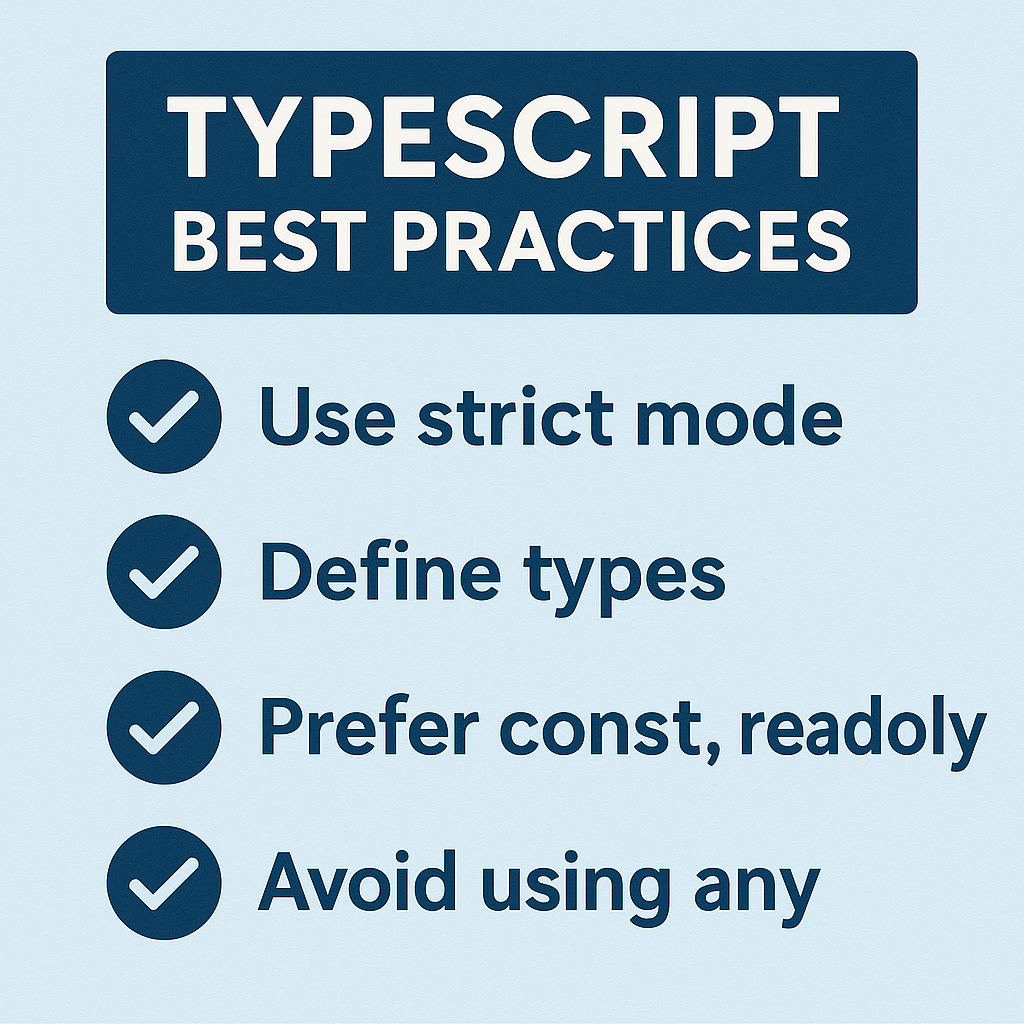
- By Carlos Perez
- 19, Mar 2024
- TypeScript
TypeScript Best Practices: Writing Clean and Maintainable Code
Learn essential TypeScript best practices that will help you write more maintainable, type-safe, and efficient code. From type definitions to advanced patterns, this guide covers everything you need to know.
1. Use Strict Type Checking
TypeScript's strict mode helps catch common programming mistakes and enables better type inference. Here are some key strict mode settings you should enable:
- strictNullChecks: Prevents null and undefined from being assignable to any type unless explicitly allowed.
- noImplicitAny: Raises an error on expressions and declarations with an implied 'any' type.
- strictFunctionTypes: Enables stricter checking of function parameter types.
2. Leverage Type Inference
TypeScript's type inference is powerful. Let it do the work when possible:
- Use const assertions: Use 'as const' to make object properties readonly and more specific.
- Avoid explicit any: Let TypeScript infer types instead of using 'any' type.
- Use type inference for functions: Let TypeScript infer return types when they're obvious.
3. Create Reusable Types
Well-designed types make your code more maintainable and self-documenting:
- Use interfaces for objects: Interfaces are better for defining object shapes and can be extended.
- Use type aliases for unions: Type aliases are better for complex types and unions.
- Create utility types: Use TypeScript's built-in utility types like Partial, Pick, and Omit.
4. Handle Null and Undefined
Proper null checking is crucial for robust applications:
- Use optional chaining: Use the ?. operator to safely access nested properties.
- Use nullish coalescing: Use ?? operator to provide fallback values.
- Type guards: Use type guards to narrow types and handle null/undefined cases.
5. Async/Await Best Practices
TypeScript provides great support for async operations:
- Use Promise types: Always type your Promises with Promise<T>.
- Error handling: Use try/catch with proper error typing.
- Async functions: Type async functions with Promise return types.
TypeScript is more than just adding types to JavaScript. It's about writing better, more maintainable code that catches errors early and provides better developer experience.




